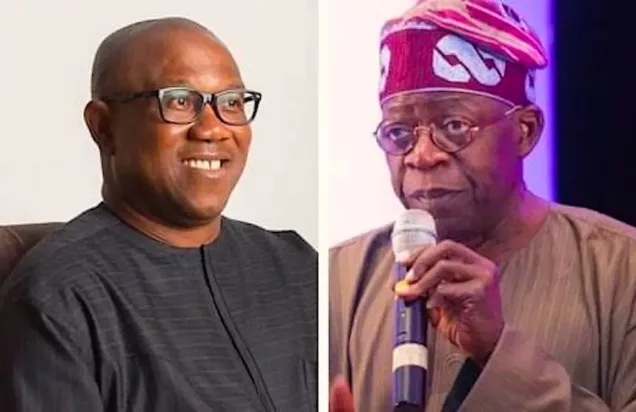The Presidential candidate of the Labour Party (LP), Peter Obi, has openly declared his support for the implementation of the Oronsaye Report by the President Bola Tinubu-led government, stating in his official X handle that if he were the president, he would have taken the same course of action.
Obi claimed that he had been contacted by many individuals inquiring as to whether, had he been elected, he would have carried out the report.
The previous governor of Anambra responded in the affirmative, saying that he included its implementation in his platform.
Being in the opposition, he said, does not justify mindless and blind criticism. He said that anytime the administration makes the right choices, related or even better ideas about how to advance the country should be put out.
His remarks followed President Tinubu’s recent directive for a full implementation of the Oronsaye-led committee’s report, resulting in a significant restructuring of government agencies.
Obi, while acknowledging the overdue nature of the report’s implementation, praised the decision, particularly focusing on its alignment with three key principles: reducing the cost of governance, eliminating overlapping responsibilities, and enhancing efficiency.
Read Also: Nigerian Youths Eager To Reclaim Their Country – Obi Says
But he emphasised the need for a thorough understanding of the implications of downsizing on workers and challenged the government to provide a clear White Paper detailing the resources saved and their redeployment plan. He called for transparency in communicating the future impact on the workforce and stressed the importance of preventing a future bloating of government.
“Although the implementation of the report is long overdue, its implementation is a welcome development so long as the decision is informed by these principles.
“Beyond implementing the Oronsaye Report, the government should go further and cut the cost of governance across board.
“Having found it imperative to implement the Report, the government should now do away with the bogus and needless wastage of our scarce resources on frivolous issues, and deploy such funds to the critical areas of Education, Health, and pulling people out of poverty.”
Obi added that implementation of the report should not be rushed because those who would directly be affected are mostly civil servants.
“We must not rush to implement the Oronsaye Report just because those that will be directly affected are mostly civil servants.
“A very deep understanding of the workings of the Federal bureaucracy will be required to effectively implement the report.
He also challenged other political leaders to back the implementation of the report.
“We, the political leaders, should be ready to back up such implementation with our sacrifices from comfort and selfishness, for the overall development of the nation.
“In implementing this Report, conscious effort must be made to cushion the effects of such a major overhaul on the workers, to avoid driving more people into hardship, in these very challenging times.
“Also Nigerians are yet to be informed about the extant White Paper pertinent to the report’s implementation. Moreover, you cannot ask those who are likely to be affected by the downsizing to manage the process.
“Government must also show clearly the amount of resources to be saved in the implied shrinking of government. It should also indicate clearly where and how the saved resources are to be redeployed.
“More importantly, the implementation needs to be accompanied by a template to avoid a future bloating of government.
“By doing the right things and implementing the right policies, we will build the New Nigeria of our dreams.”
In concluding his statement, Peter Obi urged the government to implement the right policies, showing a commitment to building the “New Nigeria” envisioned by citizens, with a focus on critical areas such as education, health, and poverty alleviation.
In 2011, former President Goodluck Jonathan constituted the Stephen Oronsaye-led panel to identify inadequacies in the country’s civil service.
In 2012, the committee submitted an 800-page report and recommended the abolishment and merging of 102 government agencies and parastatals.
The committee on the white paper submitted its report in 2014.
Since the submission of the report, the recommendations have not been implemented.

